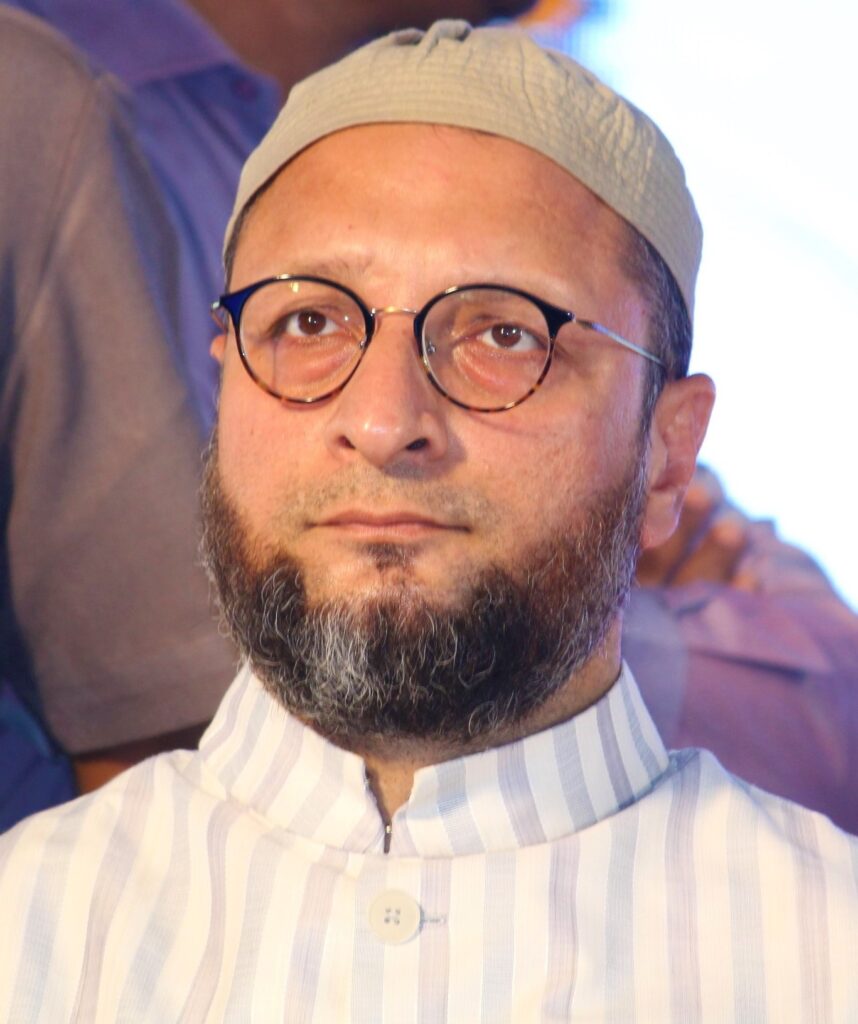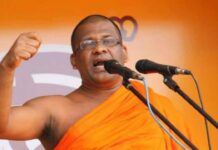
India’s Islamophobic leader Narendra Modi took his oath as Prime Minister of India yesterday after losing his parliamentary majority and needing the help of coalition allies to secure a third term.
President Droupadi Murmu administered the oath of office to Modi and his Cabinet at Rashtrapati Bhavan, the presidential house in front of a host of foreign dignitaries.
But there was no guest from Pakistan, with which India’s relations have been at a low point since 2019 when New Delhi removed special provisions granted to Jammu and Kashmir.
Modi, 73, will lead the new government for the third time as the 15th prime minister of India, with the support of allies under the National Democratic Alliance (NDA).
The results of the elections, which began on April 19 and concluded on June 1, gave the BJP 240 seats in the 543-member house.
A party requires 272 seats to form a government on its own.
However, with the support of the Telugu Desam Party and Janata Dal (United) and other partners, Modi-led NDA secured a third term with 293 seats.
Subscribe to our newsletter and stay updated on the latest news and updates from around the Muslim world!
This marks the return of coalition governments in India, the first time since 2014 when Modi’s BJP had secured the first two terms on its own.
Before the BJP won polls in 2014, the Indian National Congress (INC) led a coalition government of over 300 seats under the United Progressive Alliance.
Modi’s main challenger Indian National Developmental Inclusive Alliance (INDIA) in this general election won 232 seats, including 99 by the INC, seen as a revival of opposition in the dominant BJP era.
Modi became the prime minister for the first time in 2014 and continued his second stint after winning the 2019 elections.
Ahead of this coveted position, Modi served as chief minister of western Gujarat state from 2001 to 2014.
With the third term, Modi matched the electoral record of India’s first Prime Minister Jawaharlal Nehru.
Muslim MPs
Meanwhile, 24 Muslim contestants have made it to India’s Lok Sabha, the lower house of parliament, in the 2024 general elections, against 26 in 2019.
The winning Muslim lawmakers are not from any party in the ruling alliance, and represent either the opposition alliance or have won as independents.
Seven of these MPs are members of the Congress party, five belong to the All India Trinamool Congress, and four to the regional Samajwadi Party, which delivered a shock to the BJP by winning 37 of 80 seats in the northern Uttar Pradesh state.
The Indian Union Muslim League in southern India also won three seats, while Jammu and Kashmir’s National Conference grabbed two and All India Majlis-e-Ittehadul Muslimeen one. Two Muslims entered the parliament as independents.
These legislators represent the West Bengal, Uttar Pradesh, Jammu and Kashmir, Kerala, Bihar, Assam, Tamil Nadu, Telangana, Lakskwadeep and Ladakh states.
Among the prominent Muslim faces in the new legislature include Asaduddin Owaisi, president of All India Majlis-e-Ittehadul Muslimeen who won from the Southern Indian city of Hyderabad for the fifth time.
Another known face is former Indian cricketer Yusuf Pathan, who won from West Bengal’s Baharampur seat by defeating a Congress candidate.

In Uttar Pradesh, Iqra Choudhary, 29, from Samajwadi Party, beat Hindu nationalist BJP’s candidate by nearly 70,000 votes.
One of the surprising wins was by Sheikh Abdul Rashid alias Engineer Rashid, who is in jail since 2019.
Rashid won the election from Baramulla in Kashmir, defeating former Chief Minister Omar Abdullah by a huge margin.
Muslims are the largest minority in India and have a population of 183 million, 14% of 1.4 billion people. But their share in parliament has remained below 5%.
In this year’s polls, political parties fielded as many as 78 Muslim candidates across the country, against 115 in 2019.
In the first election held in independent India in 1952, only 11 Muslims were elected.
The number peaked at 49 in 1980, but has been falling steadily since then, and the community is said to be suffering from rising Hindu nationalism in the officially secular country.
Although the number of Muslim representatives has dwindled compared to previous elections, experts say greater awareness and education has allowed “more people” from the community to come forward.
Niaz Farooqui, secretary of Jamiat Ulema-e-Hind, India’s largest socio-religious Muslim organization, told Anadolu that the percentage of Muslims winning in comparison with the number of those who contested had increased this time, “which is positive.”
Around 31% of contestants among the Muslim candidates won this time, versus 23% in 2019.
He said given the Muslim population, the number of representatives should be more, even though historically it has remained between 3% and 5%.
Of the 24 elected lawmakers, two are women.
“In parliament, Muslim women are less in number, as compared to the other communities. But with awareness and education, it is slowly changing and women are coming forward to contest and they are winning as well,” he said.
SOURCE: AA




















